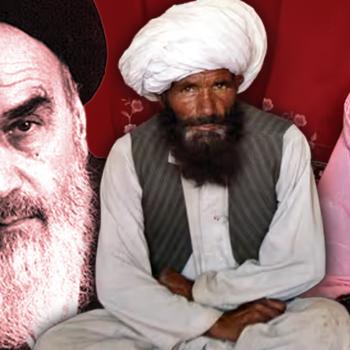 |
|
You say terrorism, I say resistance
|
At the 2002 Organisation of the Islamic Conference in Malaysia, Muslim countries gathered to form a consensus on the Islamic definition of terrorism. Alas, terrorism is nothing if not political (and murderous) – numerous struggles in Muslim lands where civilians inevitably die meant that no consensus could be reached. A subsequent meeting of the OIC last June “condemn[ed] terrorism in all its forms and manifestations,” but distinguished it from “legitimate resistance to occupation” (where presumably targeting innocent civilians is ok). Fast forward to 2005 and the current 60th anniversary UN summit in New York, where the US and Britain pushed the same issue, in light of the Iraq war and the recent London bombings. A UN committee drafted a proposed declaration stating that “the targeting and deliberate killing of civilians and noncombatants cannot be justified or legitimized by any cause or grievance,” a definition that, although quite reasonable, found opponents everywhere. Muslim governments wanted the definition to exclude the aforementioned resistance to occupation (er… this means Zarqawi, right?). The US, on the other hand, sought to limit the definition of terrorism to the targeting and deliberate killing of civilians “by terrorists” (the mobius strip of definitions). Recently appointed US Ambassador to the UN John Bolton said it was “to ensure that the scope of this paragraph is limited to terrorist actions, and does not address military activities that are appropriately governed by international humanitarian law” (begging a definition for “appropriately governed”). Also, the omission (by the US) of a demand to curb the development of WMDs was branded “a disgrace” by UN Secretary General Kofi Annan. Other members of the Security Council sought to add language referring to terrorism’s root causes and (more explicitly) state terrorism. Ultimately, the final measure adopted was more of a broad statement than a definition, leaving the matter to be discussed when the UN convenes for a follow up meeting next year. “Obviously we didn’t get everything we wanted,” said Annan. “But we can work with what we have been given, and I think it is an important step forward.” Egypt’s UN representative Maged Abdel Aziz concurred. “Any attacks on innocent civilians are terrorism and should be avoided,” he said. “But this is limited to innocent civilians. You can’t say that civilians or settlers carrying guns and occupying others’ lands are innocent civilians.”
Zahed Amanullah is associate editor of altmuslim.com. He is based in London, England.















